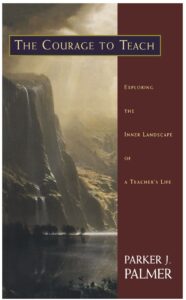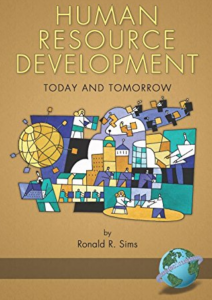 Human Resource Development: Today And Tomorrow by Ronald R. Sims
Human Resource Development: Today And Tomorrow by Ronald R. Sims
Get it at AMAZON
This book is written with the belief that HRD professionals will continue to learn, change and find ways to reinvent themselves and the profession individually and collectively as we move further into the 21st century. A major point of this book is that HRD will continue to become more and more important to organizational success. And, that in as calls for accountability and bottom line impact continue to rise, HRD professionals will be proactive in demonstrating their value to the organization.
The primary audience for this book is practicing HRM and HRD professionals, and other organizational leaders. The book provides tested and proven ideas important to demonstrating the value of HRD. From a practical viewpoint, it is based on actual experience, a strong research base, and accepted practices presented in an easy to read form.
A second target audience is students of HRD and HRM who are preparing for careers in this important field. This book will help them develop a solid foundation to the study of HRD practices that are key to HRD success regardless of the type of organization.
A third target audience is managers or leaders at all levels of an organization who are increasingly expected to take on HRD responsibilities while also partnering with HRD professionals. It offers these individuals a firsthand look at what they should expect of their HRD functions or areas and how they can encourage HRD professionals in their organizations to be accountable’ strategic partners in helping the organization achieve its success by getting the most out of its human capital.
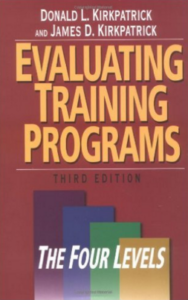 Evaluating Training Programs: The Four Levels by Donald L. Kirkpatrick and James D. Kirkpatrick
Evaluating Training Programs: The Four Levels by Donald L. Kirkpatrick and James D. Kirkpatrick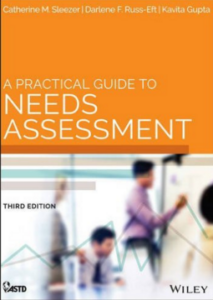 A Practical Guide to Needs Assessment by Kavita Gupta
A Practical Guide to Needs Assessment by Kavita Gupta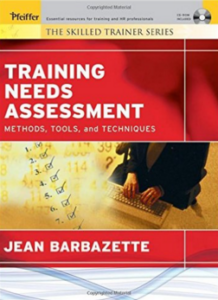 Training Needs Assessment: Methods, Tools, and Techniques by Jean Barbazette
Training Needs Assessment: Methods, Tools, and Techniques by Jean Barbazette Experiential Learning: Experience as the Source of Learning and Development by David A. Kolb
Experiential Learning: Experience as the Source of Learning and Development by David A. Kolb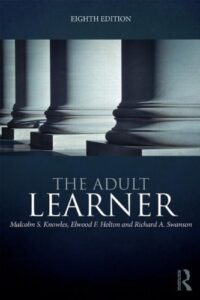 The Adult Learner: The definitive classic in adult education and human resource development by Malcom S. Knowles, Elwood F. Holton III, and Richard A. Swanson
The Adult Learner: The definitive classic in adult education and human resource development by Malcom S. Knowles, Elwood F. Holton III, and Richard A. Swanson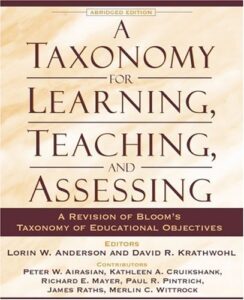 A Taxonomy for Learning, Teaching, and Assessing: A Revision of Bloom’s Taxonomy of Educational Objectives by Lorin W. Anderson
A Taxonomy for Learning, Teaching, and Assessing: A Revision of Bloom’s Taxonomy of Educational Objectives by Lorin W. Anderson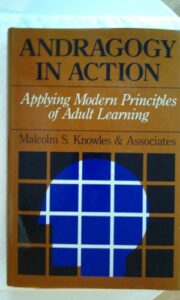 Andragogy in Action: Applying Modern Principles of Adult Learning by Malcolm S. Knowles
Andragogy in Action: Applying Modern Principles of Adult Learning by Malcolm S. Knowles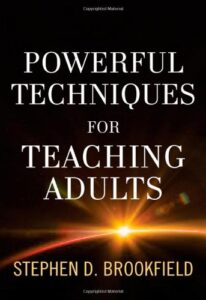 Powerful Techniques for Teaching Adults by Stephen D. Brookfield
Powerful Techniques for Teaching Adults by Stephen D. Brookfield